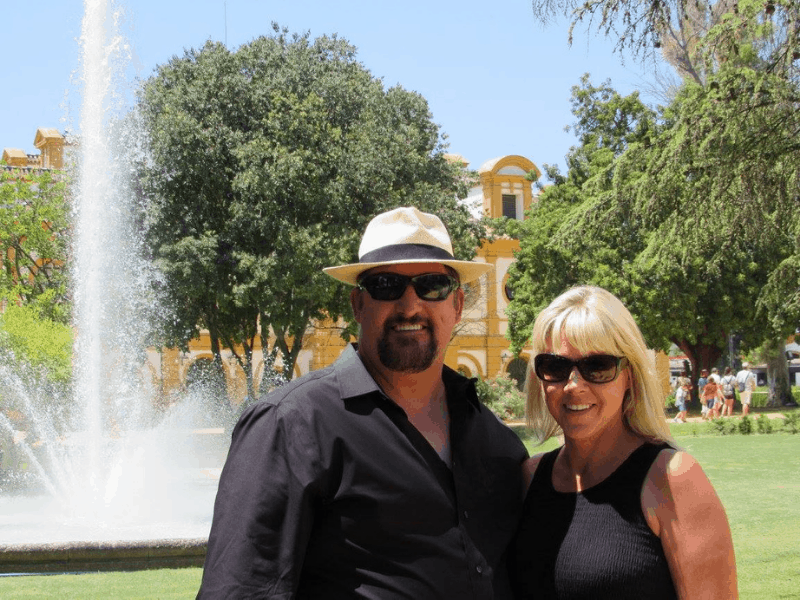
Have you ever dreamed of moving overseas after military retirement? Here’s the inspiration you need to consider retiring in Spain!
As part of our Expat Military Retiree Series, Tony Guyette, a Navy retiree, tells us what he loves about living in Rota, Spain. He embraces the slower-paced lifestyle that comes with Spanish culture, and he has plenty of great advice for military retirees who want to make the most of their retirement.
Did you move to Rota immediately post-retirement? If not, how long after retirement did you move there?
My last duty station was Rota. I applied to separate locally and immediately began working a General Schedule (GS) position.
Well, that’s not entirely true . . . I left work on Wednesday and came back the following Tuesday.
Why did you decide to retire overseas, and why did you pick Rota?
Fate, providence, blind luck?
My wife and I were both active duty and stationed here in Spain. It worked out perfectly that as one career came to a close, the other one was ready to begin, and I didn’t even need to get on a plane.
How did you get the visa/legal authorization to live in Spain? Does your legal status have any restrictions or privileges?
There is a process to separate locally. It requires permission from the installation Commanding Officer, the U.S. Consulate, and the government of Spain.
As a regular retiree, Spain has many drawbacks. The unemployment rate is high, so you need to have a unique skill set. Access to the Navy Exchange and commissary is prohibited. Your kids can attend DODEA schools, but the tuition is outrageous.
I am very fortunate that my status as a GS employee allows me most of the benefits of an active duty member.
| Related Reading: Obtaining a Non-Lucrative (Retiree) Visa to Live in Spain
Tell us about life in Rota!
Such a great question that honestly can’t be answered with any real justice. I have lived all over the world. There is nothing close to what coastal southern Spain has to offer.
Time doesn’t stand still, but it moves at maybe an eighth of the regular pace. Nothing is hurried, nothing gets done right now, right now! The restaurants open when they open, the club may be open . . . maybe not! Even your favorite grocery has the possibility of being closed when you least expect it.
And “Spain Life” is contagious! My friend is a first generation Chinese immigrant; he brought his immediate family with him to Spain. They are very hard workers! The first year, the second year, the third year maybe . . . but eventually they got infected. They work HARD for 10 months out of the year, but then it’s time for a break! Two, three months off to do nothing more than enjoy life. This is the Spain Life virus!
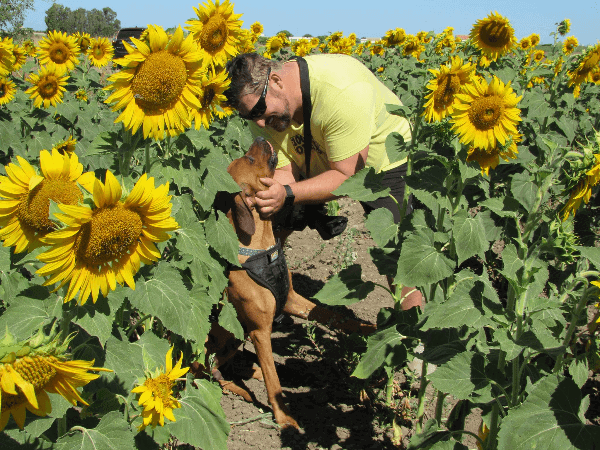
Our life is mucho tranquillo! We go to work. We come home. We walk our amazing Rhodesian Ridgeback (Zeus). AND WE ENJOY LIFE! Roses, sunflowers, sunsets, and sunshine: this is our life.
When life moves at a slower pace, you do not look forward to the weekends, you look forward to the end of the workday. You do what you have to do, so you can do what you want to do.
Do you have many friends from the local population, or do you primarily socialize with other foreigners/Americans?
We have been here six years. We have an equal number of Spanish and American friends. It would be more American friends . . . but they keep leaving on new adventures.
Do you feel “accepted” in the local community? If not, why?
This is a small town and I am Tony Gordo. Everyone Spanish and American knows me because I am unique, large, and in charge. I am also a morning radio personality, which only feeds my delusions of grandeur!
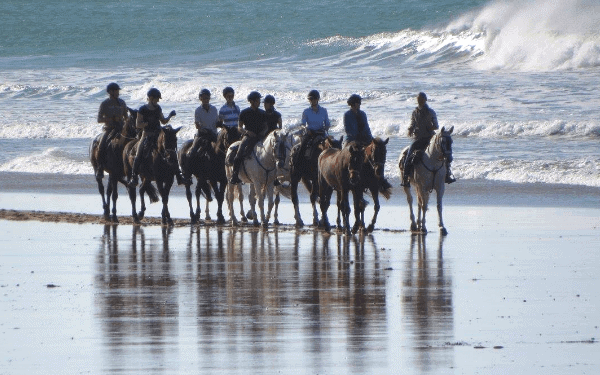
How does the cost of living in Rota compare to the U.S.?
If you live anywhere near other Americans, you will face the gringo mark-up! If you avoid the Americans and live with the Brits, you will still deal with the gringo mark-up.
If you are Spanish, you could visit a realtor and probably get a more realistic price. But like any community near a military base, landlords quickly figure out how to maximize their profits at the generosity of the U.S. government. A house that would rent for 1,000 Euros miraculously jumps up to 1,400 Euros when the owner finds out you are an E5 with dependents.
If you get away from it all . . . seriously AWAY from it all, your retirement check can be self-sustaining! Rent is cheap, the cost of living is cheap, and if you can live without A/C and heating, utilities are cheap!
Where do you get your health care and dental care? Is the local medical care good?
As a retiree I can still get care on the base for medical issues. Dental issues on an emergency, space-available basis can also be corrected. But my best bet is to stay as healthy as possible and brush multiple times a day! Honestly the dental on the outside is crazy cheap . . . but you get what you pay for!
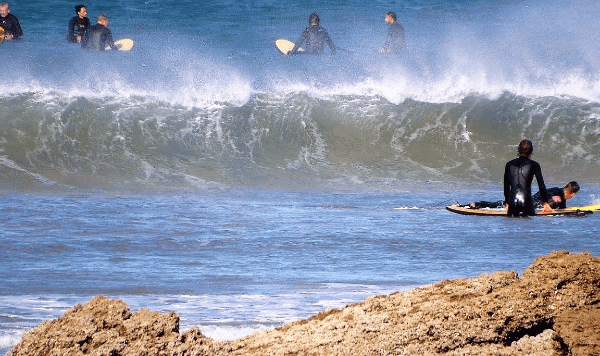
Do you speak Spanish? If not, is it difficult to navigate daily life?
I do not speak Spanish . . . I barely speak English. But the few words in Spanish I do speak, I speak with a perfect dialect . . . which makes the locals think I am fluent!
What do you like about living overseas, and specifically, about Rota?
I love it! We love it! There is another city by the sea that is closer to my heart. And if any of your readers have ever been stationed in Gaeta, Italy they will know what I mean. But if living in the second best place ever bothers some of your readers, maybe they need to re-evaluate. Maybe they need some of that Spain Life virus!
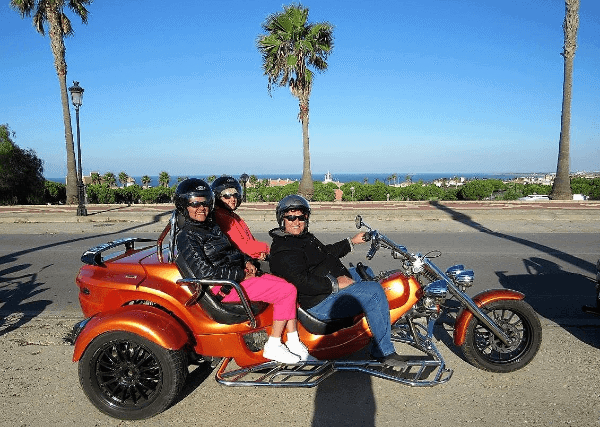
What are some of the challenges of being an expat and/or living in Spain?
In comparison to the challenges of living in the States or Korea or Japan, none of the challenges are overwhelming. We don’t really have challenges. I know that sounds ridiculous, but we don’t. We have inconveniences. We have plenty of inconveniences, but no real challenges. Learning the customs, traditions, and most importantly, the language would solve most issues.
What advice would you give to a military retiree thinking of moving abroad? Do you have any specific advice for retiring to Spain?
Go where you can live without working! If you speak Tagalog, go to the Philippines! If you speak Thai, go to Thailand! If you speak Spanish, go to Costa Rica!
Go wherever makes you happy! Go where there is a beach! Go where your retirement money lasts you until you die without working another day!
If Spain has taught me anything, it’s to enjoy EVERY DAY!
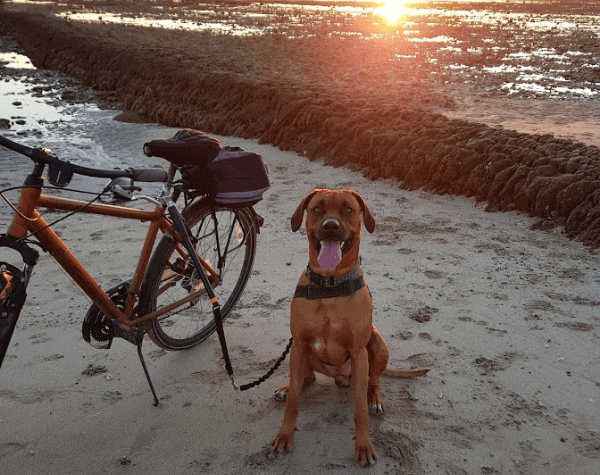
Is there anything you wish you had known or done differently prior to moving abroad?
Funny you should ask. My career took me to strange and unusual places. There was no Internet, and when there was Internet, there was no social media.
I, me, personally always found getting there and figuring it out was part of the experience! Stop asking strangers what things are going to be like at your next duty station and just go figure it out!!!
What are your longer-term plans? Do you intend to stay in Rota for the foreseeable future?
Unfortunately because of the 5-year rule, my tour is restricted to five years, with limited exceptions available. So I can’t stay here until full retirement, no matter how hard I try.
(Note from Poppin’ Smoke: The “5-year rule” refers to a DOD policy that limits U.S. federal employees hired locally in foreign areas to five years of employment.)
My longer term plans really involve taking my own advice. Enjoy every day that I am blessed to have with the people who love me, and eventually live in a place where I no longer need to go to work every day!

Anything you would like to add to assist retirees in making a decision to live overseas?
Well, if anyone has any specific questions, of course I would be willing to help them!
Where can we find your radio show?
Our Friday morning radio show (0630 CET) can be heard locally on FM 102.5, in Moron on 92.1, online at AFNEurope.net, on your phone using the AFN360 app, or on channel 141 on your AFN satellite receiver. You can sample past shows on my Youtube channel.
If Tony’s story inspired you to check out Spain, start planning your trip with this guide to flying Space-A to Rota!
Want to learn more about living abroad after your military career? Join our Facebook group U.S. Military Retirees and Veterans Living Overseas.

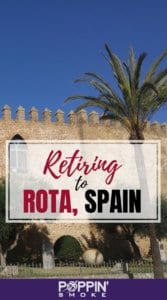
I am so glad to hear good things about Rota. Two years ago, my husband (retired Air Force) and I visited Rota on a whim as it was the only flight we could get that day from McGuire to Europe. We stayed for a couple of days before we got a flight to Ramstein, but loved what we experienced so much that we vowed to return to Rota. We plan to do it again this fall and will keep this information to help guide our trip. Thank you for this newsletter. It is very timely and informative.
Isn’t that one of the best parts of using Space-A? You can fly to Europe on a whim! Enjoy your trip to Rota! Fall is a great time to go.
Although this is a nice article regarding one person’s experience about living in Spain, it isn’t useful to the majority of us. As the interviewee pointed out, he was lucky as he got the base commander’s permission and local government officials to separate locally. None of that is within reach to most of your readers.
True, not everyone happens to have Rota as their last duty station, but you can always apply for a GS job from elsewhere. There are many military retirees in Rota, and they did not all separate locally.
As a retiree looking to return to Spain with my Spanish wife and family, it would be interesting to know what job opportunities are available on base and the rules surrounding the hiring process for people who have returned without employment. I’m currently a GS here in the states. Can I apply for jobs while in Spain and if I got a job, would I have to exit Spain and return with a fresh passport stamp to accept a job? What about the rules for local hire opportunities for retirees? This is such a great topic for discussion, and this article only touches the surface that those of us wishing to return to Spain need to know
Thanks!.
The rules for employment are complicated and lengthy. It would be hard to answer every possible questions specific to your needs and desires. The brief version, will require look ups on your part to get all the answers you may need.
Briefly there are roughly four categories for US employees, they are NAF, Contractor, GS (local hire) and GS (stateside hire). Each category has it’s own set of rules, drawbacks, and benefits. You can apply for these positions from anywhere in the world, but only GS (stateside hire) has the geographically requirement that you actually be in the States.
A quick Google search for “Jobs in Rota Spain”, will allow you to see NAF and contractor positions currently available. For GS positions, the only place I know for these positions is USAjobs.gov.
My husband is retired from the military and the federal government and we both receive social security. We are wanting to retire in southern Spain, and we don’t need to work. Our question is more for someone who is fully retired and living there. Does the Spanish government tax our government income? This seems to be a big question. We will both be using Medicare supplemented by Tricare for life. Can we use this in Spain? My husband will have access to the VA overseas, due to disability status, So we know about that. Just trying to find more answers to the tax question and the healthcare. Probably can only be answered by someone who is there and fully retired. Thank you.
Hello, I’m also curious to find out more about VA disability payment taxes in Spain. I’ve been researching Madrid. Do post 9/11 educational benefits get taxed/are they considered “income”? Thank you for your time.
Hi Valentina – The VA benefits are not taxed, per the tax treaty between Spain and the U.S.
Hey, enjoyed the article. Thanks for sharing your story.
I am very curious to know if you got a Spanish driver’s license whilst in Rota. I am finding it very difficult as an American living in Spain. Would love to know how about going about this! Thanks in advance.
Bentley